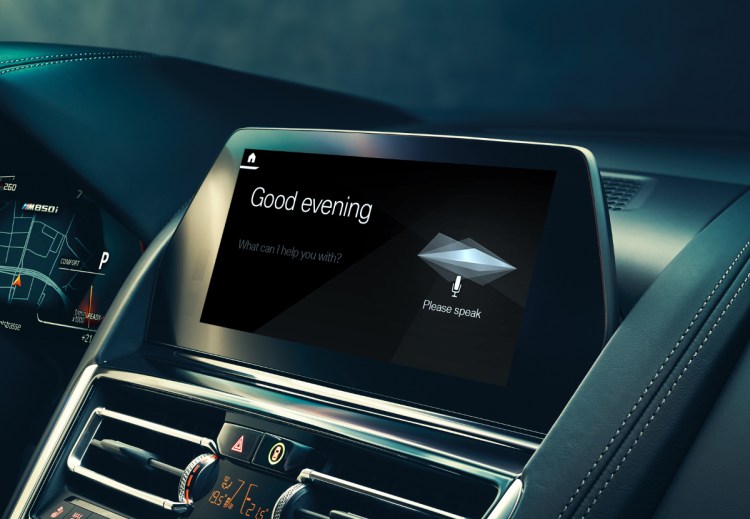Watch all the Transform 2020 sessions on-demand here.
BMW today announced plans to roll out an intelligent assistant next year that will do the range of things people have come to expect from assistants like play music, give you directions, or respond to random questions like “What’s the meaning of life?” The assistant can also respond to a series of car-specific voice commands such as “Is the oil level ok?” or “What warning messages do I have?”
When a user says “Hey BMW, I’m tired” the assistant will initiate what BMW calls vitality mode and change the lighting, temperature, and mood of music. AI systems using facial recognition in semi-autonomous vehicles are also working on recognizing when a driver is tired in order to take action.
BMW’s new assistant will speak 23 languages and will be available in May 2019 in Brazil, Japan, U.S., and many large European countries like Germany, France, Italy, Spain, and the United Kingdom.
The assistant will eventually be added to all new models using BMW Operating System 7.0, a company spokesperson told VentureBeat in an email.
June 5th: The AI Audit in NYC
Join us next week in NYC to engage with top executive leaders, delving into strategies for auditing AI models to ensure fairness, optimal performance, and ethical compliance across diverse organizations. Secure your attendance for this exclusive invite-only event.
Unlike with assistants from other companies, BMW drivers can choose the name they give their assistant.
BMW’s intelligent assistant can also integrate with Microsoft Office 365 and Skype for Business, allowing drivers to join Skype calls while driving or have emails read to them.
BMW worked with Amazon to integrate Alexa with the product and partnered with Microsoft’s Azure cloud platform to make the assistant, a company spokesperson told VentureBeat. Other intelligent assistant integrations are planned for BMW’s assistant.
The assistant will also be able to do things such as respond to commands like “Hey BMW, I’m cold” to change the temperature or look for the nearest gas station on your route.
To personalize the experience, the assistant learns things about a driver’s preferences like the seat heating level they like best or their routinely visited destinations. More personalization options will be introduced in the future.
“He [the BMW assistant] could alert the driver to problems like ‘The tire pressure is low’, for example, remind the driver of service appointments, or even arrange an appointment without further ado,” according to a statement from BMW announcing the news.
While the home has been the main battleground for the makers of AI assistants, the workplace and car are increasingly competitive landscapes for companies that want to create an assistant available everywhere you are.
Last month, Amazon introduced its Auto SDK to bring Alexa into more vehicle infotainment systems, and earlier this year Google Assistant was integrated for Android Auto.
While a number of manufacturers of home appliances and automakers have chosen to integrate Google Assistant and Alexa into their devices — Ford and Toyota have Alexa in some vehicles — others like BMW have chosen to develop their own.
It’s a case SoundHound CEO Keyvan Mohajer explained earlier this year when he said any successful company wants to maintain their relationship with customers and doesn’t want their brand “hijacked” by Amazon or Google.


